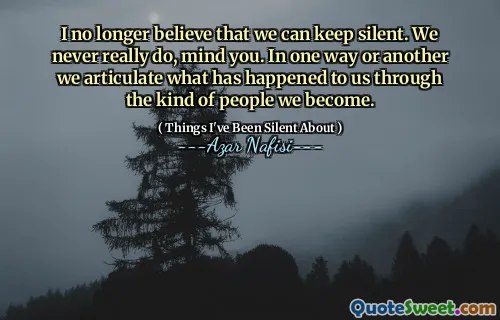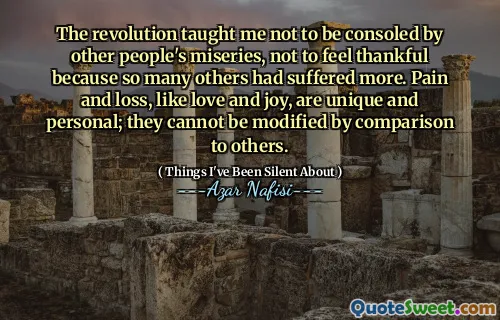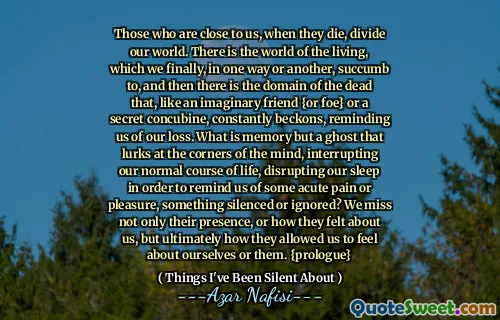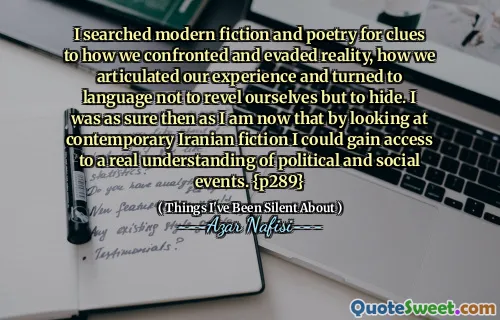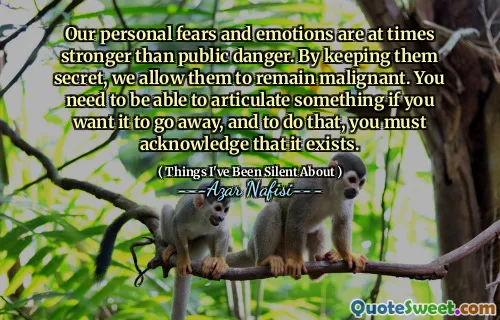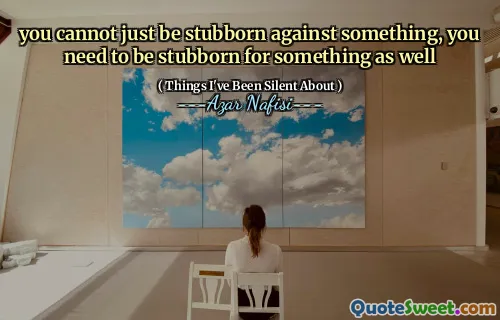
I searched modern fiction and poetry for clues to how we confronted and evaded reality, how we articulated our experience and turned to language not to revel ourselves but to hide. I was as sure then as I am now that by looking at contemporary Iranian fiction I could gain access to a real understanding of political and social events. {p289}
📖 Azar Nafisi
In her exploration of contemporary Iranian literature, Azar Nafisi seeks to understand how modern fiction and poetry reflect our struggles with reality. She emphasizes that these works often serve as tools for both confronting and evading truth, using language as a means of concealment rather than transparency. Nafisi's analysis delves into how artists articulate personal and societal experiences, revealing deeper insights into the human condition.
Nafisi's conviction is that contemporary Iranian fiction offers valuable perspectives on pivotal political and social issues. By examining these narratives, she believes we can unlock a more profound comprehension of the complexities surrounding human experiences in the face of authoritarianism. Her work highlights the importance of literature in understanding the subtleties of life under oppressive regimes.
